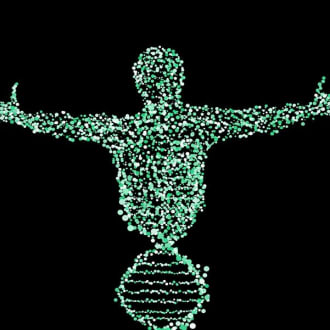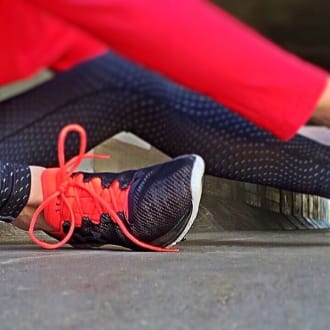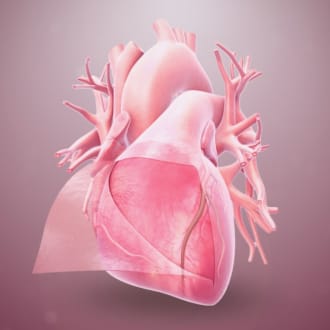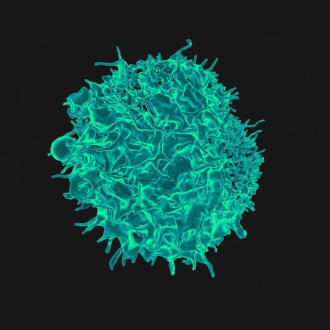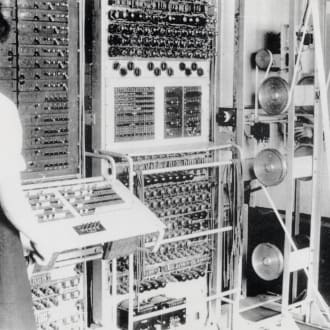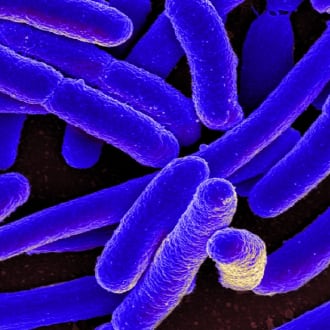The Best of Singularity Hub
20+ most popular Singularity Hub articles, as voted by our community.
Trending
These are currently making the rounds on Refind.
Amazon's Billion-Dollar Investment Arm Targets Generative AI in Robotics
The tech giant is now looking to a fund a new generation of robots by accelerating investments in startups combining AI and robotics.
A Google AI Watched 30,000 Hours of Video Games—Now It Makes Its Own
Beyond video games, Google and OpenAI seem focused on algorithms that can simulate worlds—such algorithms may be better at planning and interaction.
Singularity Hub on Artificial Intelligence
Researchers Warn We Could Run Out of Data to Train AI by 2026. What Then?
AI trained on ever-more data has yielded ChatGPT and DALL-E 3. But research shows online data stocks are growing more slowly than datasets used to train AI.
«Another option is to use AI to create synthetic data to train systems. In other words, developers can simply generate the data they need, curated to suit their particular AI model.»
Google Scrambles to Catch Up in the Wake of OpenAI's ChatGPT
Amid predictions ChatGPT could end Google's reign in search, the company plans to unveil 20 generative AI products and test a chatbot for search.
Singularity Hub on Biology
Animals That Can Do Math Understand More Language Than We Think
Animals that can do basic arithmetic show us that some really are capable of understanding the terms they use and the connections between them.
Singularity Hub on Biotech
These 2021 Biotech Breakthroughs Will Shape the Future of Health and Medicine
2021 was a big year for biotechnology, and the top three advances made will impact the field for years—if not decades—to come.
Five Ways Buildings of the Future Will Use Biotech to Become Living Things
Biology is capable of extraordinary feats of engineering, and the next frontier in building technology might be to make buildings part of nature.
Singularity Hub on Brain
A Mysterious Surge of Brain Activity During Death Probes the Edges of Consciousness
The dying brain generated waves of gamma band activity, a fast oscillating electrical wave associated with conscious processing and thoughts.
A Ball of Brain Cells on a Chip Can Learn Simple Speech Recognition and Math
Just a first step, Brainoware paves the way for increasingly sophisticated hybrid biocomputers that could lower energy costs and speed up computation.
Singularity Hub on Longevity
What's Your Biological Age? A New 'Aging Clock' Has the Answer
The clock used a simple statistical model, which looked at a certain type of epigenetic modification at just two target sites on DNA.
AI Is Rapidly Augmenting Healthcare and Longevity
AI is about the eat healthcare, resulting in dramatic acceleration of longevity research and an amplification of the human healthspan.
Singularity Hub on Medicine
Why Designing Our Own Biology Will Be the Next Big Thing in Medicine
In a talk at Exponential Medicine, Jane Metcalfe said that tools like gene editing and synthetic biology could make design the next big thing in medicine.
Singularity Hub on Microbiome
To Hack Your Motivation to Exercise, You May Just Need to Tweak Your Gut Microbiome
A chemical produced by the microbiome sends a signal from the gut to the brain, triggering a dopamine release into the brain’s motivation center.
«have demonstrated that the circuits involved in the motivation needed to sustain physical activity in mice are modulated by gut microbes,” said Agirman and Hsiao.»
Treating the Brain Through the Stomach: Tweaking the Gut Microbiome Slowed ALS in Mice
For devastating disorders in which the brain or its nerve connections gradually disintegrate, maybe it’s time to look south of the neck—towards the gut.
Singularity Hub on Renewable Energy
Scientists Just Made Hydrogen Fuel With Nothing But Air and Solar Power
The team showed that the device could run efficiently for 12 consecutive days and produced hydrogen with 99 percent purity.
A $3.5 Billion EV Battery Plant Will Convert Millions of Old Batteries Into New Parts
Redwood Materials takes in batteries at the end of their useful life, extracts key metals, and rebuilds them into cathode and anode products.
Singularity Hub on Science
'Breakthrough' CRISPR Treatment Slashes Cholesterol in First Human Clinical Trial
A single gene-editing infusion slashed artery-clogging fat by up to 55 percent. If all goes well, the one-shot treatment could last a lifetime.
These Engineered Cells Are Super Soldiers That Hunt Down Cancers
A new therapy combines two big advances, CRISPR and CAR-T, to create personalized immune cells that seek and destroy specific cancers.
Singularity Hub on Solar
This Solar Car Just Toured the US, and Will Start Production Next Year
The car’s lithium iron phosphate battery has a 190-mile range, with 465 solar half-cells integrated on its roof, doors, fenders, and hood.
Europe Is Getting Serious About Making Space-Based Solar Power a Reality
Space-based solar power involves building massive arrays of solar panels in orbit to collect sunlight then beaming the energy down to Earth.
Popular
These are some all-time favorites with Refind users.
The Brain Has a Built-in System to Keep Unwanted Memories Out, Study Finds
The entire process happens below our consciousness, suppressing unwanted memories so that they never surface to awareness.
«The three brain regions are familiar to memory researchers. Each functions like a government agency in a spy novel, with multiple tasks and vast intercommunications. Retrieving—or dampening down—a memory is similar to an intelligence operation»
What Is the Metaverse? A Beginner's Guide to Tech's Latest Obsession
There's been an explosion of noise and hype about the metaverse. If you're new to the concept, this introduction is for you.
«It’s also a good reminder that anytime you see the media claim that something is “the first” virtual-based whatever, that’s very likely not true.»
Cutting Out Just a Muffin a Day Can Make You Age More Slowly, Study Finds
Even slowing aging by just two percent corresponds to a 10-15 percent reduction in mortality risk, which is similar to quitting smoking.
Scientists Engineer Super Bacteria That Are Alien to All Life on Earth
The engineered bacteria are now resistant to even the most aggressive viruses, with little chance of leaking their synthetic code into the wild.
The World's Biggest Cultured Meat Factory Is Under Construction in the US
With a production capacity of 10,000 metric tons, Believer says the facility will be the biggest of its type in the world.
«Cells are extracted from an animal’s tissue (in a process that doesn’t harm the animal at all) and mixed with a cocktail of nutrients, oxygen, and moisture. Inside large bioreactors, the mixture is kept at the same temperature cells would be at in an animal’s body. The cells divide, multiply, and mature, with any waste products being removed to keep the environment pure.»
What is Refind?
Every day Refind picks the most relevant links from around the web for you. is one of more than 10k sources we monitor.
How does Refind curate?
It’s a mix of human and algorithmic curation, following a number of steps:
- We monitor 10k+ sources and 1k+ thought leaders on hundreds of topics—publications, blogs, news sites, newsletters, Substack, Medium, Twitter, etc.
- In addition, our users save links from around the web using our Save buttons and our extensions.
- Our algorithm processes 100k+ new links every day and uses external signals to find the most relevant ones, focusing on timeless pieces.
- Our community of active users gets the most relevant links every day, tailored to their interests. They provide feedback via implicit and explicit signals: open, read, listen, share, mark as read, read later, «More/less like this», etc.
- Our algorithm uses these internal signals to refine the selection.
- In addition, we have expert curators who manually curate niche topics.
The result: lists of the best and most useful articles on hundreds of topics.
How does Refind detect «timeless» pieces?
We focus on pieces with long shelf-lives—not news. We determine «timelessness» via a number of metrics, for example, the consumption pattern of links over time.
How many sources does Refind monitor?
We monitor 10k+ content sources on hundreds of topics—publications, blogs, news sites, newsletters, Substack, Medium, Twitter, etc.
Can I submit a link?
Indirectly, by using Refind and saving links from outside (e.g., via our extensions).
How can I report a problem?
When you’re logged-in, you can flag any link via the «More» (...) menu. You can also report problems via email to hello@refind.com
Who uses Refind?
450k+ smart people start their day with Refind. To learn something new. To get inspired. To move forward. Our apps have a 4.9/5 rating.
Is Refind free?
Yes, it’s free!
How can I sign up?
Head over to our homepage and sign up by email or with your Twitter or Google account.





